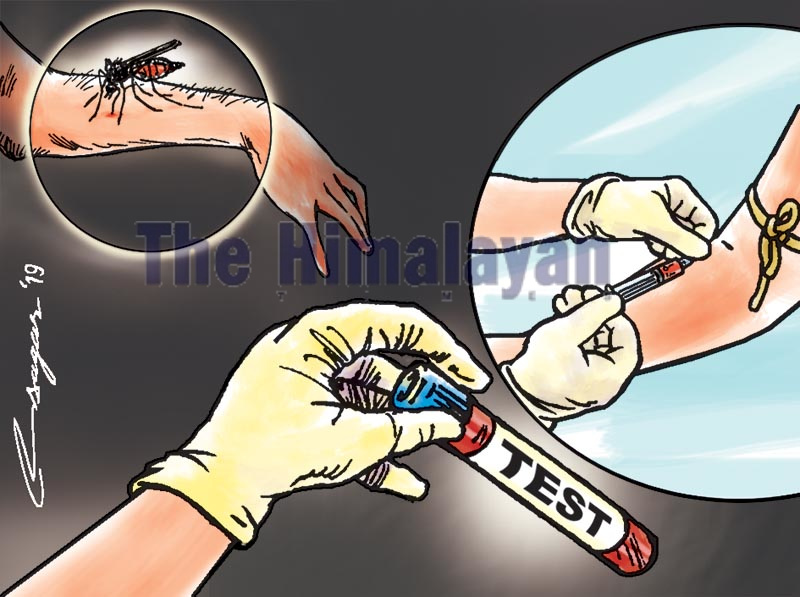Dengue cases reported across country
Kathmandu, March 14
As the fear of coronavirus spread looms large cases of dengue have been reported in the country.
According to data released by Epidemiology and Disease Control Division, a total of 36 dengue cases have been reported across the country from January till March 13.
From among the total cases, three have been reported from Kathmandu and Lalitpur and one each has been reported from Nuwakot, Ramechhap and Makawanpur.
One case has been reported from Jhapa, three from Morang and two from Sunsari in Province 1.
Also, five dengue cases have been reported from Gandaki Province — one case each has been reported from Gorkha, Myagdi, and Nawalparasi (east), while two cases were reported from Kaski.
A total of 14 cases were reported from Province 5. Rupandehi has reported the highest number of cases — 11. One case each was reported from Nawalparasi (west), Kapilvastu and Banke in the province.
Two cases, one from Dadeldhura and one from Kailali were reported from Sudurpaschim Province.
“The dengue virus is transmitted to humans when the female Aedes aegypti mosquito bites a person. It is more likely to bite early in the morning or before dusk,” said Dr Prakash Prasad Shah, senior health administrator at Epidemiology and Disease Control Division under the Department of Health Services.
The country had seen a surge in dengue patients last year. A total of 14,662 cases of dengue were reported from 67 districts across the country from July 17 till November 4 in 2019. Six persons had died then.
Though the number of cases are likely to go up, the government is yet to come up with concrete plans to prevent its spread. “All the divisions in the health sector are presently focused on combating COVID-19. They are busy with preparations to tackle coronavirus,” said Dr Basudev Pandey, director at EDCD.
“As there was a rise in the number of dengue cases last year, precautions should be taken to stop the spread of the disease. If we prevent the spread now, we can reduce the number of cases. Action should be taken immediately,” said Dr Bibek Kumar Lal, former director of EDCD.
Dengue causing mosquitoes generally grow in cities with improper waste management. They lay eggs on the water deposited in discarded tyres, bottles and cans, in water collected in flower pots and air conditioners, according to Dr Shah. “Dengue can soar high in city areas where there is dense population,” said Dr Shah.
The symptoms of dengue include high fever, severe headache, pain behind the eyes, pain in muscles and bones, rashes and back pain.






